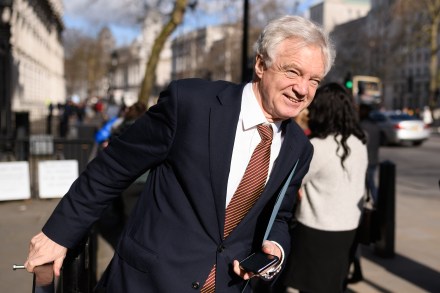David Davis fact checks Sturgeon
Nicola Sturgeon came under fire at First Ministers’ Questions today, with Ruth Davidson interrogating the SNP leader over David Davis’ bombshell on Tuesday night. Davidson asked if, as Davis claimed, a legal document was suppressed by government officials in the course of Mr Salmond’s judicial review in late 2018. Sturgeon replied that by reading out ‘his old pal Alex Salmond’s conspiracy theories about the sexual harassment allegations against him’ Davis was representing ‘the very epitome of the old boys club.’ She added that ‘anyone who chooses to cheer that on should not pretend to have the interests of the women concerned at heart.’ Strong stuff from the First Minister — though Mr S





















